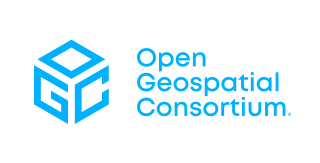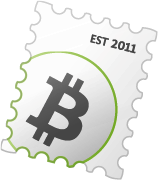
Instant messaging (IM) technology is a type of synchronous computer-mediated communication involving the immediate (real-time) transmission of messages between two or more parties over the Internet or another computer network. Originally involving simple text message exchanges, modern IM applications and services tend to also feature the exchange of multimedia, emojis, file transfer, VoIP, and video chat capabilities.
The Mozilla Foundation is an American non-profit organization that exists to support and collectively lead the open source Mozilla project. Founded in July 2003, the organization sets the policies that govern development, operates critical infrastructure, and controls Mozilla trademarks and copyrights. It owns two taxable subsidiaries: the Mozilla Corporation, which employs many Mozilla developers and coordinates releases of the Mozilla Firefox web browser, and MZLA Technologies Corporation, which employs developers to work on the Mozilla Thunderbird email client and coordinate its releases. The Mozilla Foundation was founded by the Netscape-affiliated Mozilla Organization. The organization is currently based in the Silicon Valley city of Mountain View, California, United States.
Message-oriented middleware (MOM) is software or hardware infrastructure supporting sending and receiving messages between distributed systems. Message-oriented middleware is in contrast to streaming-oriented middleware where data is communicated as a sequence of bytes with no explicit message boundaries. Note that streaming protocols are almost always built above protocols using discrete messages such as frames (Ethernet), datagrams (UDP), packets (IP), cells (ATM), et al.
OMA SpecWorks, previously the Open Mobile Alliance (OMA), is a standards organization which develops open, international technical standards for the mobile phone industry. It is a nonprofit Non-governmental organization (NGO), not a formal government-sponsored standards organization as is the International Telecommunication Union (ITU): a forum for industry stakeholders to agree on common specifications for products and services.

LedgerSMB is a libre software double entry accounting and enterprise resource planning (ERP) system, focused on functionality required by small (self-employment) and medium size businesses. However, companies with millions of journal lines should also feel supported. Accounting data is stored in a free to use database server (PostgreSQL) and a standard web browser can be used as its user interface. The software is suited for hosting locally as well as on various public cloud providers. Commercial support can be obtained from several providers.

The Linux Foundation (LF) is a non-profit organization established in 2000 to support Linux development and open-source software projects.
"Embrace, extend, and extinguish" (EEE), also known as "embrace, extend, and exterminate", is a phrase that the U.S. Department of Justice found was used internally by Microsoft to describe its strategy for entering product categories involving widely used open standards, extending those standards with proprietary capabilities, and using the differences to strongly disadvantage its competitors.
A distributed social network is a network wherein all participating social networking services can communicate with each other through a unified communication protocol. Users that reside on a compatible service can interact with any user from any compatible service without having to log on to the origin's website. From a societal perspective, one may compare this concept to that of social media being a public utility. Federated social networks contrast with social network aggregation services, which are used to manage accounts and activities across multiple discrete social networks that cannot communicate with each other. A popular example for a federated social network is the fediverse, with more niche examples such as IndieWeb complementing the network.
WebRTC is a free and open-source project providing web browsers and mobile applications with real-time communication (RTC) via application programming interfaces (APIs). It allows audio and video communication and streaming to work inside web pages by allowing direct peer-to-peer communication, eliminating the need to install plugins or download native apps.

The Open Geospatial Consortium (OGC) is an international voluntary consensus standards organization that develops and maintains international standards for geospatial content and location-based services, sensor web, Internet of Things, GIS data processing and data sharing. The OGC was incorporated as a not for profit in 1994. At that time, the official name was the OpenGIS Consortium. Currently, commercial, government, nonprofit, universities, and research organizations participate in a consensus process encouraging development, maintenance, and implementation of open standards.

The XRP Ledger (XRPL), also called the Ripple Protocol, is a cryptocurrency platform launched in 2012 by Ripple Labs. The XRPL employs the native cryptocurrency known as XRP, and supports tokens, cryptocurrency or other units of value such as frequent flyer miles or mobile minutes.

Bitstamp is a Luxembourg-based cryptocurrency exchange founded in 2011. It is the world’s longest-running cryptocurrency exchange. It allows trading between fiat currency, bitcoin and other cryptocurrencies, such as the U.S. dollar, the euro, the pound sterling, Ethereum, Litecoin, Ripple, Bitcoin Cash, Algorand, Stellar, and USD Coin. Business operations are conducted from its registered headquarters in Luxembourg City, with a satellite office in Ljubljana.

Counterparty is a peer-to-peer financial platform and a distributed, open source protocol built on top of the Bitcoin blockchain and network. It was one of the most well-known "Bitcoin 2.0" platforms in 2014, along with Mastercoin, Ethereum, Colored Coins, Ripple and BitShares.
Encrypted Media Extensions (EME) is a W3C specification for providing a communication channel between web browsers and the Content Decryption Module (CDM) software which implements digital rights management (DRM). This allows the use of HTML video to play back DRM-wrapped content such as streaming video services without the use of heavy third-party media plugins like Adobe Flash or Microsoft Silverlight. The use of a third-party key management system may be required, depending on whether the publisher chooses to scramble the keys.

Stellar, or Stellar Lumens (XLM) is an open-source, decentralized cryptocurrency protocol for digital currency to fiat money low-cost transfers which allows cross-border transactions between any pair of currencies. The Stellar protocol is supported by a Delaware nonprofit corporation, the Stellar Development Foundation, though this organization does not enjoy 501(c)(3) tax-exempt status with the IRS.

Matrix is an open standard and communication protocol for real-time communication. It aims to make real-time communication work seamlessly between different service providers, in the way that standard Simple Mail Transfer Protocol email currently does for store-and-forward email service, by allowing users with accounts at one communications service provider to communicate with users of a different service provider via online chat, voice over IP, and videotelephony. It therefore serves a similar purpose to protocols like XMPP, but is not based on any existing communication protocol.
Hyperledger is an umbrella project of open source blockchains and related tools that the Linux Foundation started in December 2015. IBM, Intel, and SAP Ariba have contributed to support the collaborative development of blockchain-based distributed ledgers. It was renamed the Hyperledger Foundation in October 2021.
WebUSB is a JavaScript application programming interface (API) specification for securely providing access to USB devices from web applications.
Mojaloop is an open-source software project of the Mojaloop Foundation. The project is a reference model for creating interoperable payments platforms for digital financial providers intended to reduce the technical barrier of financial inclusion efforts. It was created and released by the Bill & Melinda Gates Foundation’s Level One Project in 2017. Moja is a Swahili word meaning "one".
Open finance is a concept and practice within the financial services industry that involves the secure sharing of financial data with third-party service providers through Application Programming Interfaces (APIs). Building upon the principles of open banking, which focuses primarily on banking data, open finance aims to give consumers and businesses greater control over their financial data, enabling them to access a wider range of financial products and services. This includes sharing data beyond traditional banking, encompassing areas like investments, pensions, mortgages, and insurance.









